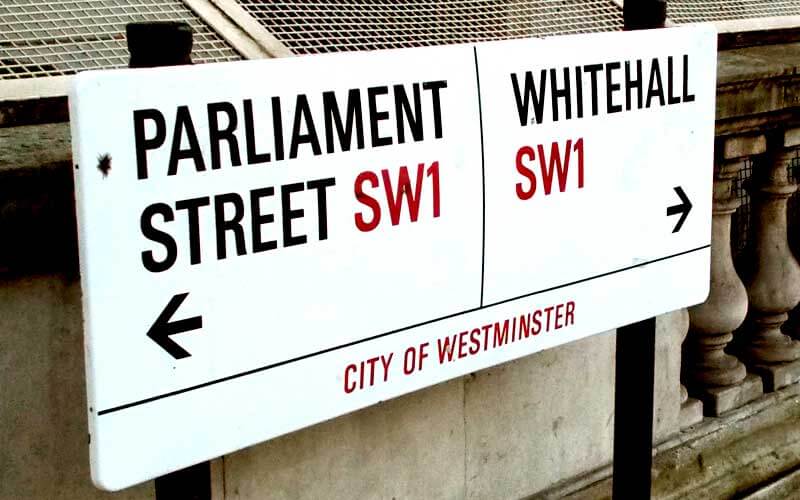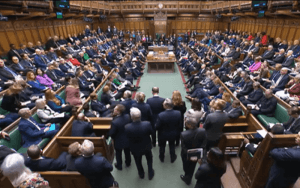Campaigners are pushing the government to make key changes to its domestic violence bill so that it provides disabled people with “crucial” new protections from abusive carers and care workers, and new social security rights for survivors of abuse.
They are calling on disabled people to lobby their MPs – and particularly those MPs on the committee currently examining the bill, who begin their work today (Thursday) – to force through these changes to the draft legislation.
They say the domestic abuse bill already contains important measures that could help protect and support disabled people, but they also believe that there are important areas where it could be improved.
The lobbying work is being headed by the London-based user-led organisation Stay Safe East, which works with disabled survivors of domestic and sexual abuse, hate crime and other forms of abuse.
Stay Safe East has also worked closely with the charity SignHealth, the disabled women’s collective Sisters of Frida, the disabled people’s organisations Choice in Hackney and Merton Centre for Independent Living, and the user-led organisation Disabled Survivors Unite.
Many of their concerns have also been backed by a wider alliance of organisations working with survivors of domestic abuse and other violence against women and girls.
Ruth Bashall, chief executive of Stay Safe East, said the changes they were seeking could make a “crucial” difference to the lives of disabled women.
She said there has been far more engagement with women’s organisations and the Home Office than there was six years ago, when the last major piece of domestic violence legislation was being discussed in parliament.
Bashall said: “They are starting to get that the needs of disabled survivors have not been addressed and that they need to start looking at them.
“Part of that is using the bill to address the really, really significant issues around the fact that disabled women in particular are probably three times more likely to be victims of domestic abuse and four times more likely to be victims of sexual violence, in comparison with non-disabled women.
“It is a chance to say that disabled survivors matter and we will do our best to make sure they get an equal outcome.”
Stay Safe East and other user-led organisations are focusing their lobbying efforts on four key amendments that they want the government to make to the bill.
The first is to remove from law the existing “carer’s defence” which allows a family member or partner accused of abuse to claim they were acting in the disabled person’s best interests.
Stay Safe East and its allies say this “reinforces the widely help belief that carers are always benign”, and sends a clear message to the criminal justice system that disabled people are “vulnerable victims” who are “not worthy of protection” in the same way as non-disabled people.
Bashall said: “It’s discrimination and we simply want it abolished.”
Another key measure they want changed is to expand protection for disabled people so that the bill covers abuse not just by family, friends and partners but also paid care workers and personal assistants, and friends and neighbours who carry out unpaid caring duties
Bashall said: “The personal connections you have as disabled people are different.
“If you’re abused by that person, the impact, the way it happens, the means they have of controlling you, what they do, the psychological and long-term impact, is domestic abuse.
“It destroys your sense of self, it stops you trusting people in the same way as if it had been a partner.”
She said this proposed amendment was about ensuring that disabled people who experience domestic abuse get equal treatment.
She added: “If we don’t get that definition, you’re basically saying to disabled victims of paid or unpaid carers: you don’t matter.”
They also want to see the jobseeker’s allowance (JSA) domestic violence “easement” – which allows survivors of domestic abuse on JSA an exemption from job-seeking conditions for up to 13 weeks – to be extended to those who are on or are starting a claim for employment and support allowance (ESA).
Because there is no ESA version of the easement, disabled women can be called for a work capability assessment while they are trying to escape an abusive relationship.
The fourth key amendment they want to see is for domestic abuse that involves disability-related hostility to be prosecuted as both domestic abuse and hate crime.
Stay Safe East says that an “overwhelming majority” of its clients have experienced hostility as part of domestic abuse “because they are disabled people”, for example through denying them access to equipment, manipulating their medication to make their physical or mental health worse, or mocking them or calling them abusive names related to their impairment.
Bashall said she was optimistic that MPs and peers would understand the importance of this and the other amendments that user-led organisations are pushing.
She added: “We would like people to lobby their MPs and talk to members of the House of Lords.
“We are not a token minority, but we need as much support as we can get.”
A note from the editor:
Please consider making a voluntary financial contribution to support the work of DNS and allow it to continue producing independent, carefully-researched news stories that focus on the lives and rights of disabled people and their user-led organisations.
Please do not contribute if you cannot afford to do so, and please note that DNS is not a charity. It is run and owned by disabled journalist John Pring and has been from its launch in April 2009.
Thank you for anything you can do to support the work of DNS…

 Stammering charity calls on parliament to act on ‘febrile atmosphere’ in debates
Stammering charity calls on parliament to act on ‘febrile atmosphere’ in debates Disabled politician won’t fight general election after ‘intolerable’ hate crime
Disabled politician won’t fight general election after ‘intolerable’ hate crime Disabled women’s collective searches for more of Frida’s sisters
Disabled women’s collective searches for more of Frida’s sisters